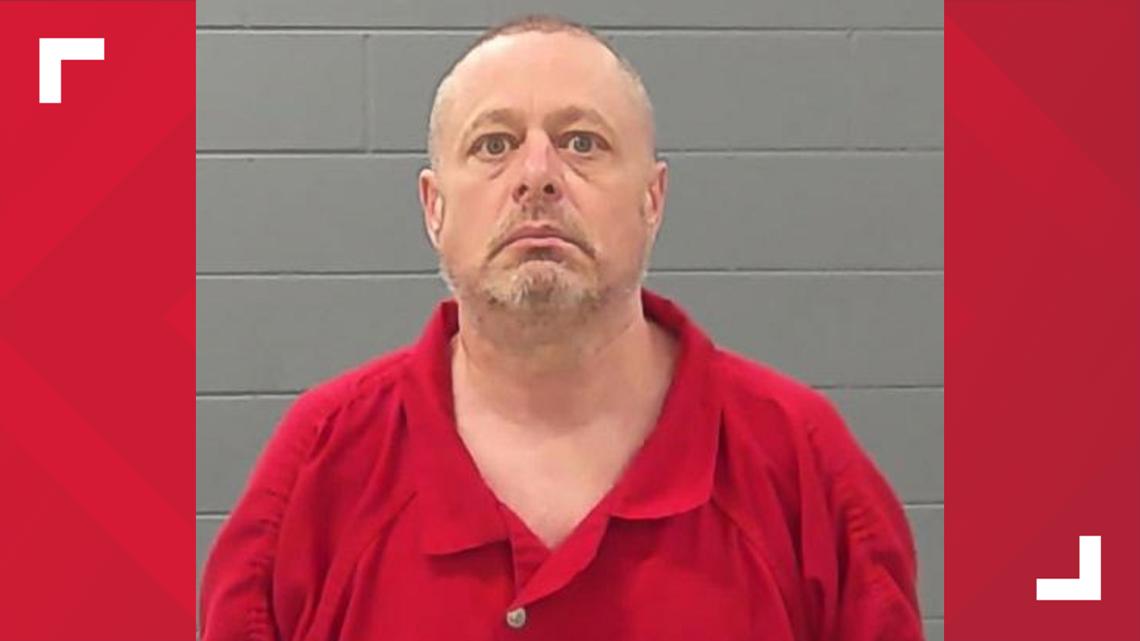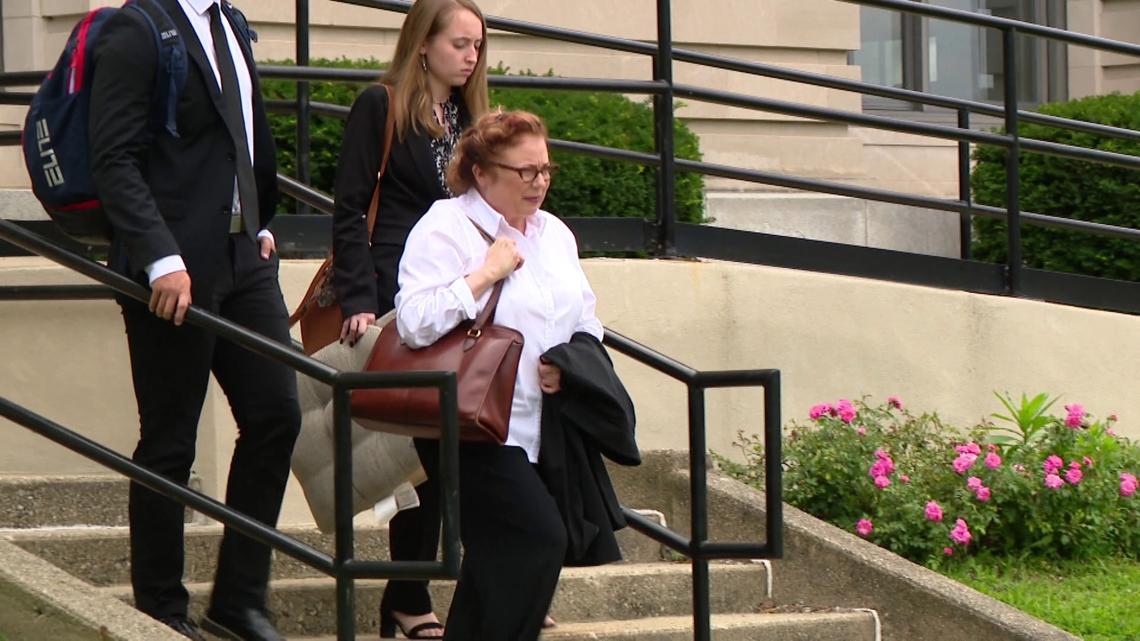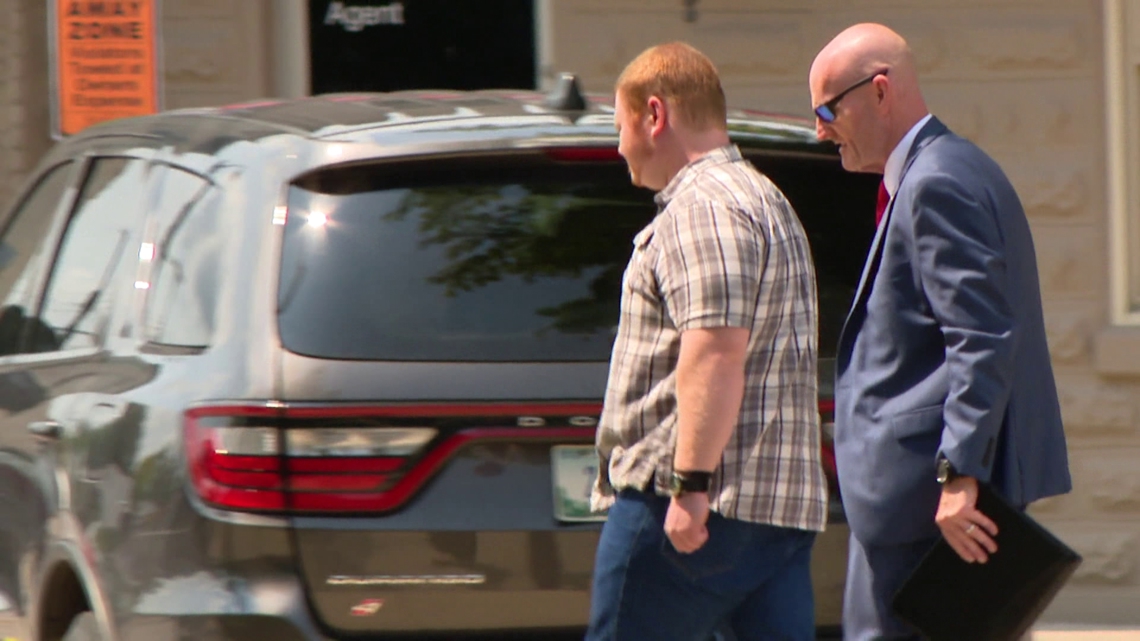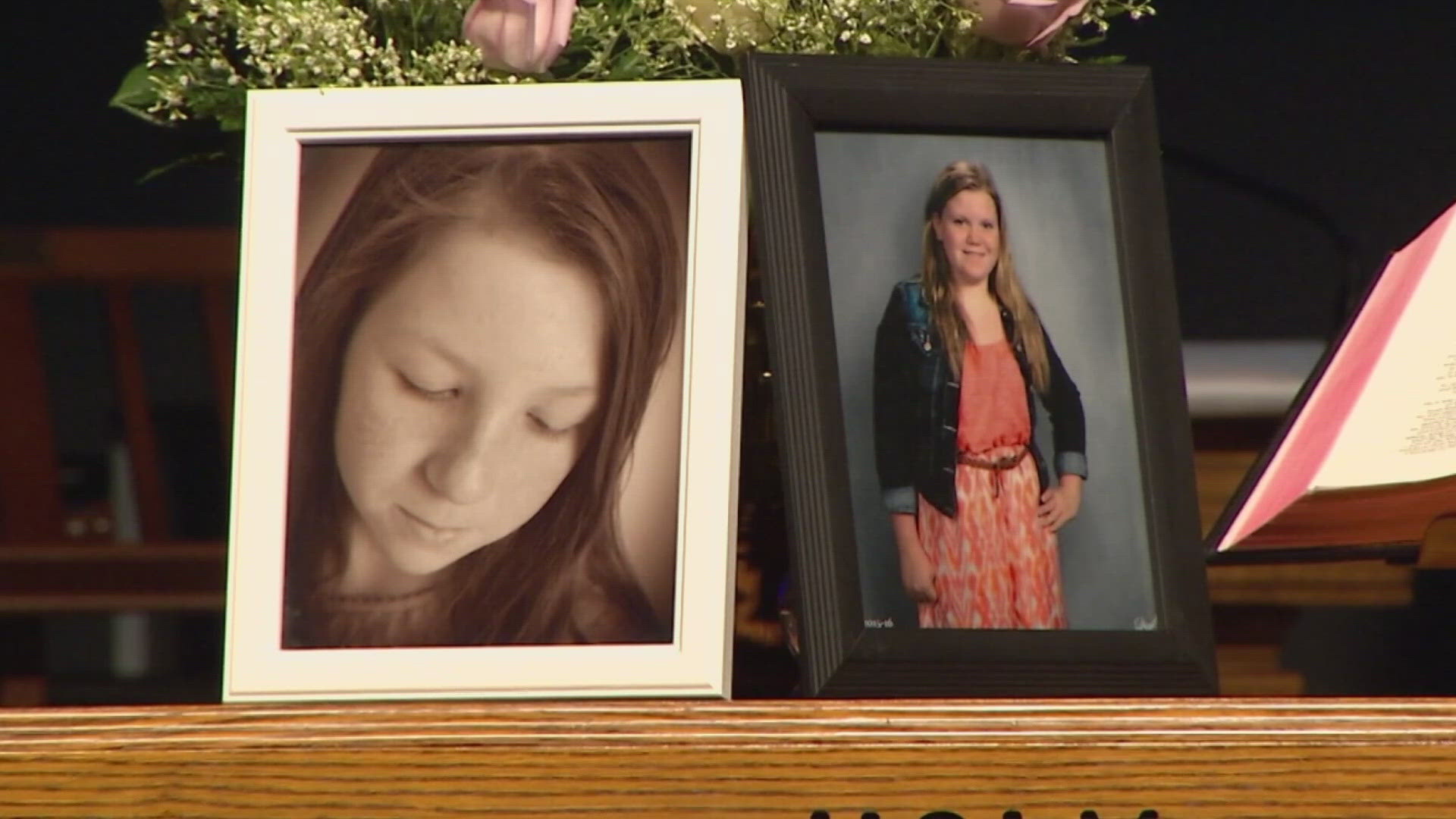DELPHI, Ind. — A third day of pre-trial hearings in the Delphi murders case ended with a win for defendant Richard Allen: after 19 months in maximum security state prisons, he will now be detained in a county jail.
Judge Frances Gull approved the move Thursday night. It comes in response to a request from Allen’s lawyers to vacate a safekeeping order that’s kept the murder defendant locked up at two of the state’s highest-security prisons. The safekeeping has been in place since Allen was arrested in October 2022, and it was requested by the Carroll County Sheriff’s Department, which said it did not have enough staff or adequate facilities to safely house Allen in its county jail.
In asking the judge to vacate the safekeeping order, Allen’s attorneys argued that their client’s detention in maximum-security prisons located more than 200 miles and several hours away from his family and defense counsel was negatively impacting Allen’s health, as well as his attorneys’ ability to prepare a defense. Gull agreed to lift the safekeeping order, releasing Allen back into the custody of the Carroll County Sheriff while awaiting his October trial.
Allen seemed genuinely surprised as the judge announced her decision.


Thursday night, Carroll County Sheriff Tony Liggett told 13News he would not disclose which county jail Allen will be moved to or when he will be transferred. But Tuesday morning, Liggett testified that Cass County Sheriff Edward Shroeder had agreed to accept Allen at the Cass County jail in Logansport, where jail officials feel confident they can safely house Allen through the conclusion of his trial.
Signs of a ritualistic murder
Prior to the judge’s ruling, Thursday’s hearing featured some emotional testimony from law enforcement officers and compelling – sometimes graphic – crime scene analysis from experts who specialize in forensics and ritualistic crime investigations.
The nearly 12-hour hearing focused largely on whether to grant a request from the Carroll County prosecutor to prohibit Allen’s defense team from telling a jury that the murders of Abby Williams and Libby German were committed by alternate perpetrators.
Allen’s attorneys believe several men with ties to the Norse pagan religion of Odinism killed the teenage girls in February 2017 as part of a ritualistic sacrifice. But in order for a jury to hear that theory and any supporting evidence, Allen’s defense team must first prove to Judge Gull that a direct connection exists between the alternate perpetrators and the actual murders.
In an effort to establish that connection, defense attorney Andrew Baldwin called multiple witnesses, starting with an expert in ritualistic crime scene investigations.


Dawn Perlmutter helps teach and train FBI and DEA agents to identify indicators of ritualistic murders. After reviewing crime scene photos and other evidence of the Delphi murders, she testified “in my opinion, this was a textbook ritual murder.”
Perlmutter went on to explain the way the girls were killed, how their bodies were positioned, where they were found and symbolism at the crime scene all point to a crime committed by people who believe in Odinism.
Prosecutor Nick McLeland pushed back on that opinion, pointing out that Perlmutter shared that same opinion about the Delphi murders on a national TV program nearly a year ago, long before she got to review actual crime scene evidence provided by defense attorneys.
Officer chokes back tears
Throughout the afternoon, several police officers took the witness stand to talk about their investigations into some of the alternate suspects the defense team wants to discuss at trial.
Former state police investigator Kevin Murphy, who spent more than 30 months investigating the killings of Williams and German, testified that the alternate perpetrators “seem to know things that no one would know unless they were there” at the crime scene.
Murphy closed his eyes and began crying when defense attorney Andrew Baldwin handed him a crime scene photo showing the dead body of Williams. “It’s tough," he said, clenching his jaw and trying to hold back more tears.
He said that one of the alternate suspects proposed by Allen’s attorneys asked him a bizarre question after agreeing to submit his DNA.
“He said, ‘If it happens to show my spit is on the one of the girls and I can explain it away, am I good?’” Murphy testified.
The longtime state police investigator said another alternate suspect identified by the defense team had posted drawings, photos and a painting on his personal Facebook page that “identically mimic the crime scene” – something that Murphy said “is not a coincidence.”


The ex-wife of that same alternate suspect testified Tuesday that she heard her ex-husband identify the person who killed Abby Williams. “He said I need to keep my mouth shut and if I didn’t, they’d kill me," she said.
She also described a knife owned by her ex-husband that he used to cut open their hands as part of a ritual ceremony that required blood to honor the god Odin.
Former Rushville Police officer Todd Click, who assisted in the Delphi murders investigation, testified he investigated several of the men that defense attorneys are now interested in, adding that he was “shocked and confused” when the prosecutor charged Allen rather than someone with ties to Odinism.
But during cross examination, all of the officers who testified about the alternate suspects admitted they found no evidence placing those individuals in Delphi or at the scene of the murders when Williams and German were killed.
“There was no direct evidence,” Click said during cross examination.
That lack of evidence might sway Judge Gull to grant McLeland’s motion to prohibit testimony about the defense team’s six Odinism-related alternate perpetrators, which would be a significant blow to Allen and his defense team.
More alternate suspects
Prosecutors also want the judge to block any testimony and evidence about Ron Logan, Kegan Kline and Jerry Kline – three other alternate suspects identified by the defense team.
Allen’s attorneys asked Judge Gull to review a 2017 search warrant for the home of Logan, the man who owned the wooded property where the girls’ bodies were found. Logan has since died, but the defense says the warrant shows Logan lied to police about his whereabouts on the day of the murders.
ISP detective David Vido testified about his investigation into Kegan Kline, who communicated with Libby German on social media under the screen name “Anthony Shots” in the weeks before the murders. Once investigators identified Kline as the person behind the account that had contacted German on the day of the murders, they obtained a search warrant for his laptops and phones and discovered the devices contained child pornography.
Vido testified that significant resources were devoted to investigating whether Kline and his father, Jerry, were connected to the murders before Richard Allen was arrested, even taking Kline to a cemetery near the crime scene in August 2022, where Kline claimed to have gone with his dad on the day the girls were killed.
Vido said Kline had told police his father went into the woods for a few hours and came back with blood on him, and that his dad threw a cellphone and knife in the river before they left the area. The detective told the court that investigators later searched the water near the crime scene, but they found no cell phone belonging to Kline or knife matching the one he described.
Vido said after Allen’s arrest months later in October 2022, investigators discovered Allen had at some point lived in the same Miami County neighborhood as the Kline family, but they never found proof the families spent time together.
On cross examination, Vido told prosecutors that police were able to disprove that Kegan Kline and his dad had been in Delphi on the day of the murders, testifying that investigators found cellphone evidence showing both were at home in Peru. Vido told the court that investigators were not able to place Kline or his father at the crime scene or in Delphi on the day of the murders.
Graphic testimony
Enlarged crime scene photos presented as evidence were displayed facing witnesses and the judge, so they were mostly hidden from victims’ family members, media and other individuals sitting in the courtroom gallery.
But family members heard gut-wrenching testimony Thursday as witnesses described the victims’ fatal injuries, more details about the crime scene, and opinions from a blood-spatter expert who investigated the murders.
Maj. Patrick Cicero testified he has more than 20 years of experiencing crime scenes and was asked by the Carroll County prosecutor to review crime scene photos, autopsy reports, diagrams of the Delphi crime scene and clothing worn by the victims.
Cicero testified that the blood located on a tree at the crime scene was not a symbol placed there intentionally – a very different opinion than the one shared hours earlier by ritualistic crime scene expert Dawn Perlmutter.
“The best explanation for this pattern on the tree was from a transfer stain,” Cicero said, explaining he believed the blood came from one of the victims’ hands touching the tree.
His testimony about blood at the crime scene was among the most graphic of the three days of hearings.
As Judge Gull sorts through procedural issues and the focus soon shifts to the actual details of the murders that must be presented to a jury, more graphic information and more painful days for the victims’ families lie ahead. Jury selection for the long-awaited trial is scheduled to begin in 74 days.
Between now and then, Judge Gull will need to issue decisions and orders on all of the unresolved motions debated over the past three days.
Those issues include:
- The state’s request to prohibit discussion of alternate perpetrators identified by the defense.
- A defense motion to suppress the 60+ confessions Richard Allen made while in prison.
- The state’s request to admit incriminating statements that Allen made to his prison psychologist.
- The defense team’s request for sanctions against the prosecutor for not quickly turning over evidence to the defense.
- A defense motion asking the judge to dismiss all charges against Allen due to missing evidence that, according to defense counsel, could help prove the defendant’s innocence

